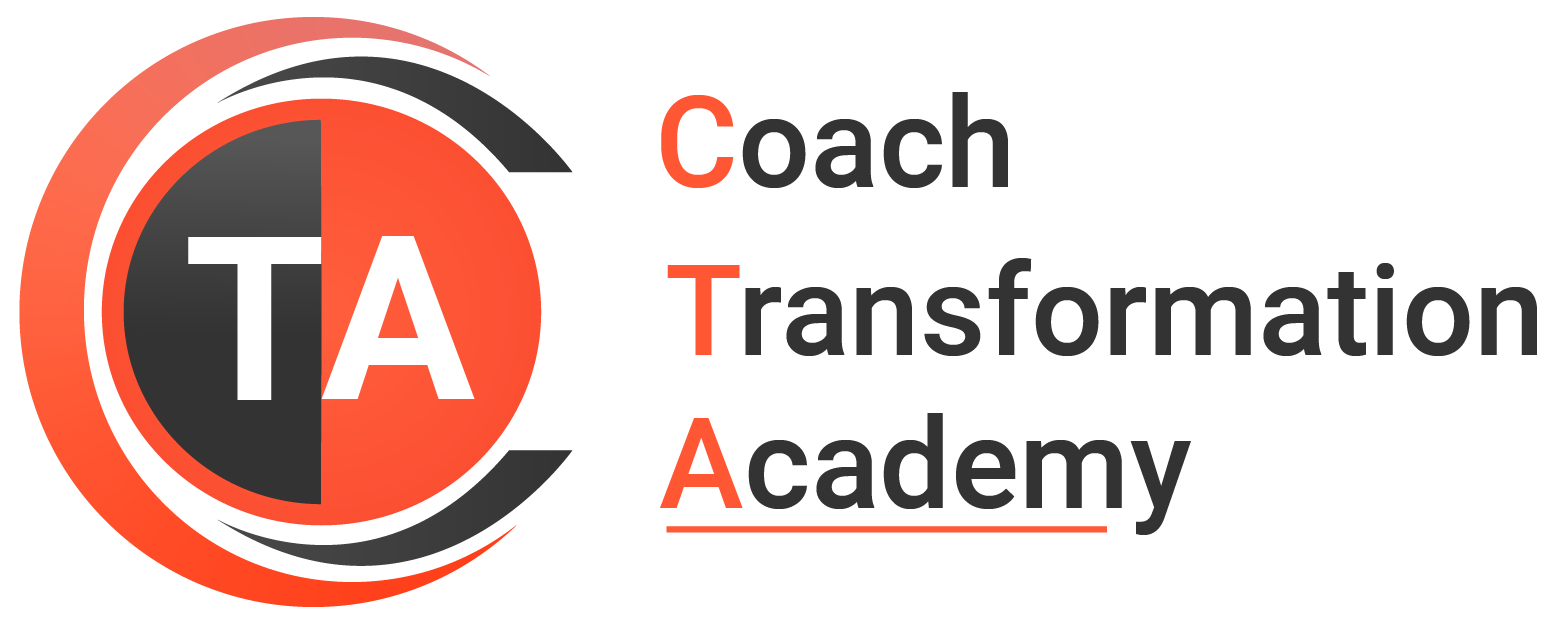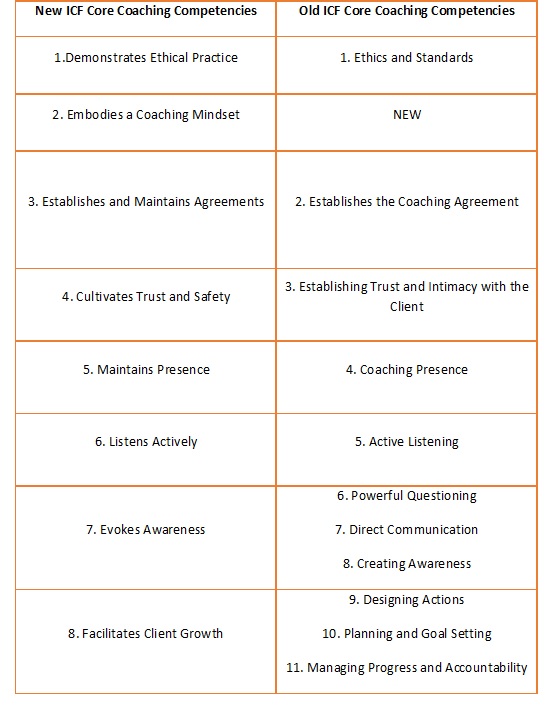On November 14, 2019, the International Coach Federation (ICF) widely released their Updated Core Competency Model. International Coach Federation (ICF) Core Competency model is a strong foundation for ICF accreditation and credentialing processes. An updated ICF Core Competency model reflects collective insights and wisdom shared with ICF through this comprehensive research initiative:
“From start to finish, more than 1,300 coaches—both ICF Members and non-members—from around the globe participated in this research. These coaches represented a diverse range of coaching disciplines, training backgrounds, coaching styles, and experience and credentialing levels. No other coaching certification body has undertaken this level of research, and we’re incredibly proud of the quality, integrity, and validity of our evidence-based approach to credentialing, and to the value, it brings to ICF credential holders.”
So… what’s new with the ICF CC model?
While much of the original ICF Core Competency model remains relevant and reflected in current coaching practice, the new competency model offers a simpler, more streamlined structure and integrates consistent, clear language. Here’s what included in the Updated ICF CC Model:
- Demonstrates Ethical Practice
- Embodies a Coaching Mindset
- Establishes and Maintains Agreements
- Cultivates Trust and Safety
- Maintains Presence
- Listens Actively
- Evokes Awareness
- Facilitates Client Growth
Let’s see in detail:
1 – Demonstrates Ethical Practice.
Definition: Understands and consistently applies coaching ethics and standards of coaching
It is similar to the previous model, yet new additions are made in this competency. For instance, respecting and recognizing the client’s identity, environment, experiences, values, and beliefs as a part of coaching competency makes coaching applicable on a broader humane context.
2 – Embodies a Coaching Mindset. (A new competency)
Definition: Develops and maintains a mindset that is open, curious, flexible, and client-centered.
Coincide with older competency “Coaching Presence” that actually focuses on a spontaneous relationship with clients that is open, flexible, and confident. Other notable additions in this competency are:
- Acknowledges that clients are responsible for their own choices
- Engages in ongoing learning and development as a coach
- Develops an ongoing reflective practice to enhance one’s coaching
3 – Establishes and Maintains Agreements.
Definition: Partners with the client and relevant stakeholders to create clear agreements about the coaching relationship, process, plans, and goals. Establishes agreements for the overall coaching engagement as well as those for each coaching session.
The new version of this core competency identifies the significance of the various agreements coaches engage with, including stakeholders. The new coaching competency outlines coaching conversation as a ‘client-driven’ process instead of a ‘coach-driven’ process. With the more precise version of the core competency, ‘partnering’ is identified as one of the key coaching competencies.
4 – Cultivates Trust and Safety.
Definition: Partners with the client to create a safe, supportive environment that allows the client to share freely. Maintains a relationship of mutual respect and trust.
This core competency address coaches to adapt to the client’s system rather than forcing them to adapt to the coach’s system. The phrase “trust and intimacy” has been changed to “cultivating trust and safety.” Given everything we are learning about psychological safety, this feels the right addition to the new competency.
5 – Maintains Presence.
Definition: Is fully conscious and present with the client, employing a style that is open, flexible, grounded, and confident.
This is similar to the current Coaching Presence definition. However, the context of ‘being present’ here changes with the addition of the “Embodies a Coaching Mindset” competency.
6 – Listens Actively.
Definition: Focuses on what the client is and is not saying to fully understand what is being communicated in the context of the client systems and to support client self-expression.
In addition to focusing completely on what the client is saying and is not saying, the client’s context, identity, environment, experiences, values, and beliefs are acknowledged to understand what the client is communicating.
7 – Evokes Awareness.
Definition: Facilitates client insight and learning by using tools and techniques such as powerful questioning, silence, metaphor, or analogy.
This competency covers three current core competencies of Powerful Questioning, Direct Communication, and Creating Awareness.
8 – Facilitates Client Growth.
Definition: Partners with the client to transform learning and insight into action. Promotes client autonomy in the coaching process.
This new competency envelops three current core competencies of Designing Actions, Planning and Goal Setting, Managing Progress and Accountability.
Along with these changes, the conciseness in the language is also an important update in the CC model that brings more clarity in the role and purpose of coaching conversations. Contemplating stakeholders as part of the coaching conversation and client, especially in the coaching agreement, is a substantial welcoming step that resembles with the continuing scenario of coaching as a profession.
The new ICF CC model is more holistic, recognizing the need for coaches to be aware of their coachee’s culture, identity, values, and overall context. The updated competencies clearly help aspiring coaches to comprehend coaching as a client-driven process rather than a coach-driven process. The current core competencies still are in the majority. The older model will be used for credentialing purposes until the start of 2021. The updated ICF Core Competencies increased clarity and brevity. Overall, the Competencies will be better understood and easier to follow.







